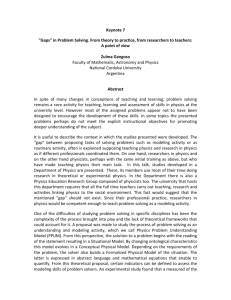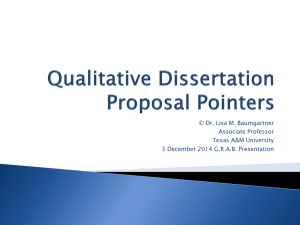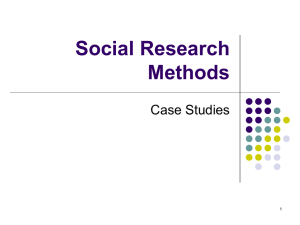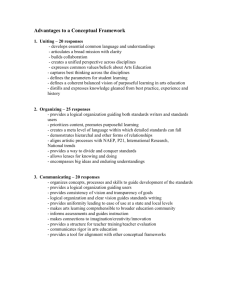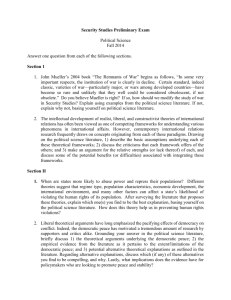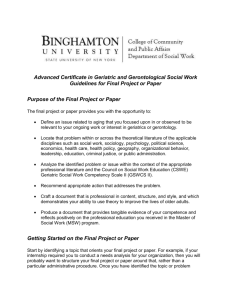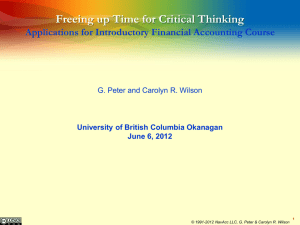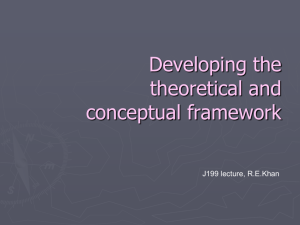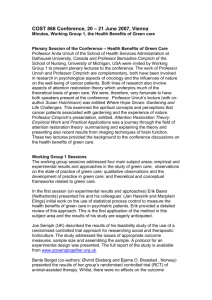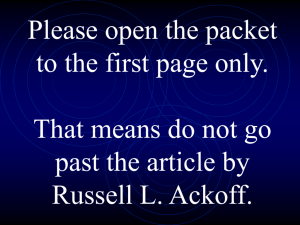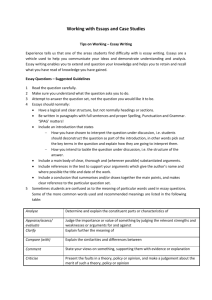Chapter 2: The research process
advertisement
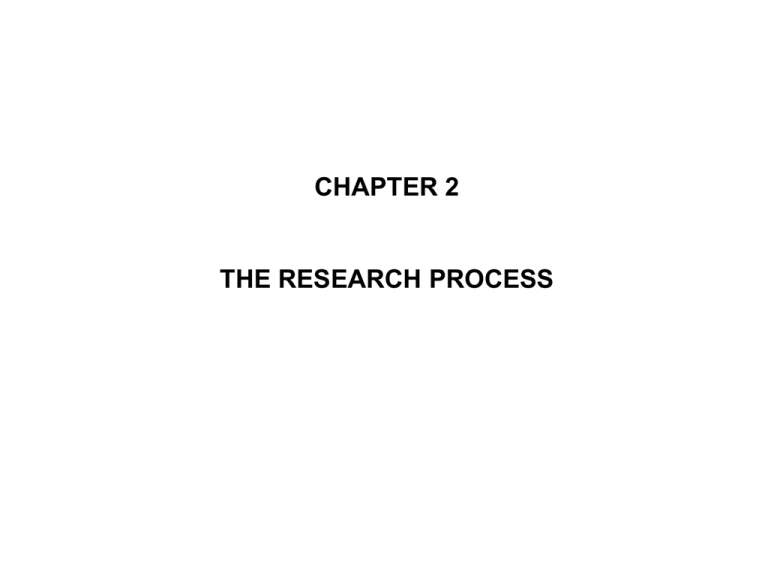
CHAPTER 2 THE RESEARCH PROCESS THE RESEARCH PROCESS 1. Selection of topic 2. Reviewing the literature 3. Development of theoretical and conceptual frameworks 4. Clarification of research question/hypothesis 5. Research design 6. Data collection 7. Data analysis 8. Drawing conclusions STAGE 1. SELECTION OF TOPIC 1. A crucial stage, as an inappropriate topic or question will often lead to irretrievable difficulties later in the research. 2. It is unlikely that you will develop a final question and set of objectives at this stage of the research process, and stages 2 and 3 are important in developing and assessing your question more fully. STAGE 2. REVIEWING THE LITERATURE • A literature review essentially consists of critically reading, evaluating and organising existing literature on the topic to assess the state of knowledge in the area. • During this stage you should aim to become an ‘expert’ in your field of research. • Generally done alongside the development of the theoretical and conceptual frameworks (stage 3 of the research process). STAGE 3. DEVELOPMENT OF THEORETICAL AND CONCEPTUAL FRAMEWORKS • As you read the literature, you should be continually developing and refining your theoretical and conceptual frameworks. • Your theoretical framework refers to the underlying theoretical approach that you adopt to underpin your study. • The conceptual framework defines and organises the concepts important within your study. STAGE 4. CLARIFICATION OF THE RESEARCH QUESTION Initial research questions are chosen, investigated and often rejected for a number of reasons, for example: • The question lacks sufficient focus. • The conceptual framework has identified problems in either defining and/or measuring the appropriate concepts. • There are too many moderating or intervening variables. • The project is unfeasible in terms of complexity, access, facilities or resources. STAGE 5. RESEARCH DESIGN • What data do I need to collect to answer this question? • What is the best way to collect this data? • What overall research design should I use? For example, a cross-sectional, experimental or longitudinal design? • Will I need to collect primary or secondary data? • What methods, for example interviews, questionnaire surveys and so on, will be best to collect the primary data? • Who should participate in the research? • How will I gain access to them? • What are the exact procedures that I should adopt in my data collection to ensure reliability and validity? • Are there any ethical issues associated with the research? STAGE 6. DATA COLLECTION You have to consider • which methodology to choose, and • which methods to utilise. STAGE 7. DATA ANALYSIS AND DISCUSSION OF THE FINDINGS 1. The data you collect in stage 6 needs to be analysed to provide answers to your research question. 2. In your discussion of the results, reference should also be made back to the literature reviewed in stage 2, for example • How do the findings add to this literature? • Do they support the literature? • If not, what are the possible reasons why? STAGE 8. DRAWING CONCLUSIONS • Conclusions should relate back to the focused research question. • You can evaluate how successful you have been in achieving your research objectives, and highlight the strengths and weaknesses of the research. • You may also want to make recommendations for further research. SUMMARY 1. Research is not just about the collection of data. Data collection is important, but it is simply part of a wider process – the research process. 2. The research process follows 8 steps: selection of topic, reviewing the literature, developing your theoretical and conceptual frameworks, clarifying your research question, developing a research design, collecting data, analysing data, and drawing conclusions. 3. Relating your project to the research process will allow you to develop and answer your research question in a logical and systematic manner.
